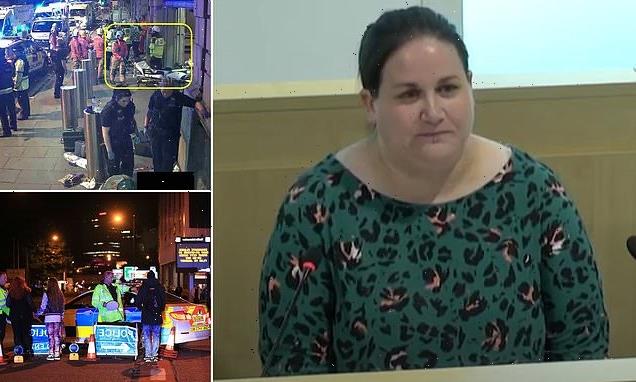More On:
courts
‘The Wire’ actor alleges sex abuse by journalist, who calls contact consensual
NY’s Clean Slate bill takes second chances too far
Ex-DoorDash driver who contaminated Chipotle order held for parole violation
Fresh trove of Ghislaine Maxwell court docs have been unsealed
A Staten Island man convicted of possessing stolen property will get a new hearing to determine whether three prospective black jurors were dismissed due to their race, a state appellate court ruled.
Attorneys for Wesley Brissett — a 34-year-old black man who was sentenced to a year in jail — had sufficiently raised a presumption of discrimination based on Staten Island prosecutors’ “exercise of peremptory challenges” against the black jurors during selection at his 2016 trial, the state Appellate Division panel ruled last Wednesday.
Brissett, of Staten Island’s Mariners Harbor section, was found guilty of possessing items stolen from a Port Richmond home, but was acquitted on burglary charges, the Staten Island Advance reported.
A decision on Brissett’s appeal of his conviction and sentence has also been suspended pending the hearing in state Supreme Court in St. George, the appellate panel ruled.
The panel also ruled that a different judge should preside over Brissett’s hearing after Supreme Court Judge William Garnett chided a defense attorney for “starting this black thing” during jury selection.
Prosecutors initially used peremptory challenges to exclude three black prospective jurors during the first round of jury selection in Brissett’s case without questions from either side, the appellate court ruled.
An attorney for Brissett asked prosecutors to give a race-neutral reason for dropping one potential juror, to which Garnett replied there was no “possible prima facie case yet” since just one juror had been selected.
Prosecutors then tried a for-cause challenge against the lone black prospective juror during a second round of selection, after the man said his father and two cousins had been jailed but promised to be impartial if selected.
“Nevertheless, the prosecutor stated that he was challenging that prospective juror because ‘[h]e was a little vague with his responses as to the family members that he had as far as incarcerated and was kind of vague as far as it will play a role in his decision making here,” the appellate court ruled.
Garnett denied a for-cause challenge by prosecutors and later ruled that defense attorneys for Brissett failed to sufficiently establish that discrimination played a role, the appellate court said.
Prosecutors again used peremptory challenges during the third round of jury selection against the lone black prospective juror on the panel — a man who said his brother was a recently retired NYPD cop whose own home had been burglarized.
Defense attorneys opposed the move, which angered Garnett, according to last week’s ruling.
“I’m getting a little annoyed,” Garnett said. “This is not the Bronx.”
The defense claimed prosecutors showed a “pattern of exercising peremptory challenges” to black potential jurors, but Garnett ruled there was no showing of discrimination since prosecutors didn’t challenge three of four black possible jurors in the first round.
“There was no reason for starting this black thing,” Garnett said.
Garnett ruled that the three black jurors who ultimately served on the jury were “fairly representative” of the community, but his comments were “irrelevant” on whether the prosecutors’ challenges were discriminatory, the appellate court ruled.
“Consequently, we hold the appeal in abeyance and remit the matter to the Supreme Court, Richmond County, to hear and report for that purpose,” the ruling read. “Under the particular circumstances of this case, we deem it appropriate that such proceedings take place before a different Justice.”
Staten Island District Attorney Michael McMahon said in a statement to The Post on Tuesday that prosecutors in his office are committed to “ensuring fair and equal justice” while denouncing discrimination and bias.
“In this case, we believe that no discriminatory conduct occurred by prosecutors during jury selection, and we welcome the opportunity to address these issues when the case is returned for further proceedings before another judge,” McMahon said.
Share this article:
Source: Read Full Article



